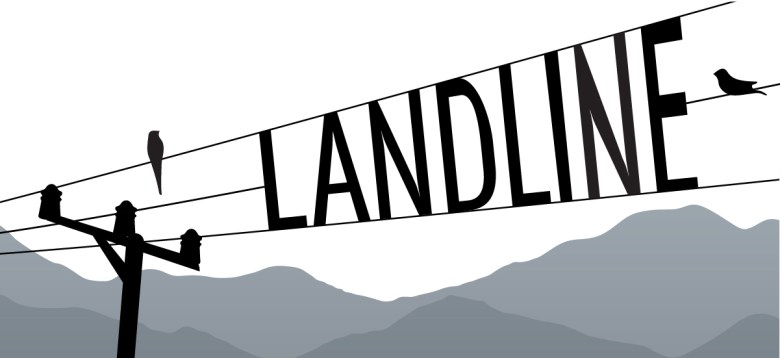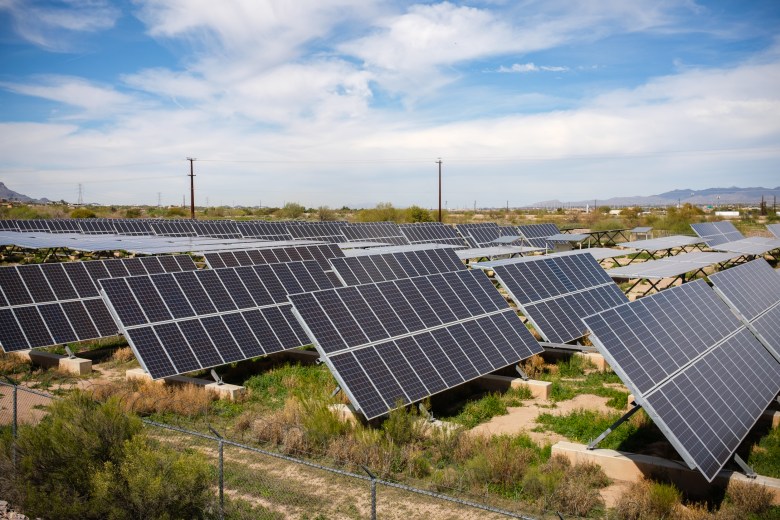
This is an installment of the Landline, a monthly newsletter from High Country News about land, water, wildlife, climate and conservation in the Western United States. Sign up to get it in your inbox.
It’s that time of year again, when Western state legislators gather in their respective capitals and pass new laws by the dozen. Much of this action happens below the national media’s radar, in part because the laws simply aren’t as far-reaching as federal legislation. Besides, the number of bills in each state can be downright overwhelming: Arizona Gov. Katie Hobbs, for example, vetoed 143 bills in 2023.
Yet the legislation state lawmakers propose can prove consequential, not only for the residents of the state in question, but also for the West as a whole, since the laws often deal with issues involving climate, energy, civil rights and even federal public lands. And since single parties dominate many Western states, and since those states’ lawmakers conduct so much of their business outside the national spotlight, they tend to have more latitude to pass groundbreaking — and at times batshit crazy — laws, sometimes without much debate.
There aren’t enough words to cover all the legislation being bandied about in state roundhouses this year, so I’ll stick with a relatively small sampling of measures that, I hope, will provide a snapshot of the good, the bad and the ugly — not to mention the occasionally hateful and the downright crazy.
In Utah, lawmakers are clinging desperately to fossil fuels, so much so that the Salt Lake Tribune called it “the year of coal” for the GOP-dominated Legislature. Republicans want to rewrite state energy policy to boost “reliable” and “affordable” resources — i.e., coal and natural gas — and deprioritize clean and renewable energy, which lands at the very bottom of their list of desirable achievements. One proposed bill would require the state to encourage development of oil shale, while a separate effort seeks to make it difficult or impossible for utilities to close coal or natural gas plants, even for economic reasons. These proposals echo laws passed in Wyoming in recent years, which have managed to drive up utility rates without doing much to save the coal industry. Wyoming’s session has only just begun, but so far the legislators have already held a hearing featuring climate deniers, who loudly tout the benefits of carbon dioxide emissions.

Gov. Spencer Cox echoed the theme; he has already signed the Utah Constitutional Sovereignty Act, sponsored by longtime public-lands foe Republican Rep. Ken Ivory. It allows the Legislature to “prohibit the enforcement of a federal directive within the state” if lawmakers feel it “violates the principles of state sovereignty.” Basically, Utah is declaring itself above the law — or at least above any laws and rules it doesn’t like — specifically, the U.S. Environmental Protection Agency’s “good neighbor” regulation, which aims to stop Utah from sending ozone-forming pollution over state lines.
And yet, through this nasty cloud of coal-loving bluster, Utah’s SB189 shines like a ray of energy-generating sunlight. Introduced by Republican Sen. Wayne Harper, it would increase compensation for rooftop solar owners who sell excess power back to the grid. The bill was still advancing as we wrote this, though it’s running into predictable opposition from utilities.
This year, progressive New Mexico Democrats once again introduced bills that would tighten regulations on oil and gas development. And once again they were overwhelmed by the petroleum industry’s oversized influence on the economy and on its elected leaders. An attempt to enact the first major reforms of the state’s oil and gas act in nearly a century would have required wells and other facilities to be set back from schools, homes and bodies of water; substantially increased reclamation bonds; and required operators to capture 98% of natural gas emanating from their wells by 2027. But lawmakers first stripped the bill of its main provisions, then allowed it to quietly perish.
But the session wasn’t a total loss for climate advocates: New Mexico became only the fourth U.S. state to enact a clean fuel standard aimed at reducing greenhouse gas emissions from transportation.
California and Colorado, both run by Democrats, will consider myriad oil- and gas-related bills in their respective sessions, including, in Colorado, a longshot measure that would ban new oil and gas drilling and phase out existing wells. But both states’ lawmakers will have to contend with powerful petroleum lobbies.
Arizona’s Legislature is dominated by the GOP, many of them from the party’s MAGA wing. Gov. Katie Hobbs, meanwhile, is a reform-minded Democrat. This all makes for an interesting, if somewhat dysfunctional, lawmaking dynamic (see the 143 vetoes, above) — especially when it comes to the climate and environment.
Democrats find it tough to get even the most innocuous bills to a vote: Witness a proposal to fund shade-tree planting at low-income schools, which the GOP gleefully shot down last year, along with other measures aimed at managing the state’s dwindling water supplies. Republicans, meanwhile, spend a lot of energy crafting bills designed to block government agencies from establishing environmental regulations or spending money on climate-friendly programs.
The GOP, for example, wants to ban measuring devices on some groundwater wells and halt any solar and wind development that might impede cattle grazing. Republicans also want to tax solar panels, make it more difficult for utilities to retire coal or natural gas power plants, and allow private firms to pump and move groundwater to satisfy the thirst of the rapidly growing Phoenix area.

Those bills probably won’t make it past the governor’s desk. But Republicans are using a Transportation Department funding measure to make some initiatives less vulnerable to veto, including a GOP effort to permanently kill a proposed passenger rail line between Tucson and Phoenix and another that would block electric vehicle charger installations.
The Ugly: I’m old enough to remember when the West was known for valuing individual freedoms — a place that prided itself on its easygoing ethos: “You be you, I’ll be me.” It’s also traditionally been the least religious part of the nation. But recently, the region has seen an invasion: Evangelical Christian cultural crusaders are out to restrict self-expression by pushing a raft of anti-LGBTQ legislation from Alaska to Arizona.
Utah lawmakers wasted no time in passing a law — signed promptly by Gov. Cox — that prohibits transgender people from using bathrooms in public buildings that align with their gender identity. And Rep. Ivory — yes, that guy again — is not only looking to make it easier to ban books, he also wants to make it a crime for public school teachers to make prohibited texts available to students.
Idaho is considering bills that would restrict gender identity, ban schools from teaching about gender and sexuality, and establish an annual Mother’s Day-to-Father’s Day period as “an opportunity to raise awareness about … the alarming rate at which the traditional American family (as “designed by God”) is declining.” Arizona, Wyoming and Alaska are also considering legislation that would restrict the liberties of LGBTQ+ people.
The Batshit Crazy: This year’s race to come up with the wackiest legislation in the West is, once again, hard to call. Wyoming’s usually a front-runner, but the state got off to a late start this season. Utah (see above) is running neck-and-neck with Idaho, which is poised to redefine the term “domestic terrorism” to make it easier for folks like the Bundys to stage insurrections and threaten federal employees. Then there’s the flurry of futile legislation pushed by New Mexico’s MAGA duo, Rep. John Block and Sen. Stefani Lord, who introduced bills to impeach the governor, repeal background checks for firearm sales, reinstate the death penalty, chemically castrate sex offenders and create a Gadsden flag license plate, among other things.
That’s some serious crazy, yes, but it looks like the Unhinged Award is likely to go to Arizona Sen. Anthony Kern. The Republican introduced a bill that would prohibit spending public funds to advocate for eating less meat and dairy or promoting public transit use or even walking or bicycling instead of driving. Kern’s bill would put the kibosh on reducing or tracking greenhouse gas emissions, or battling climate change, period. It also sought to ban “reusing water that has touched human feces as a source of municipal drinking water,” along with anything that “furthered Marxist ideologies,” which, in Kern’s view, includes “stakeholder capitalism.” And the bill would allow any God-fearing, meat-eating, anti-bicycling, non-poop-drinking citizen who catches any public official or entity doing any of these dastardly things to sue said official.
As we write this, Kern’s bill continues to advance, indicating that the entire Arizona Legislature richly deserves this year’s Gold Medal in Gonzo.
Your news tips, comments, ideas and feedback are appreciated and often shared. Give Jonathan a ring at the Landline, 970-648-4472, or send us an email at landline@hcn.org.

